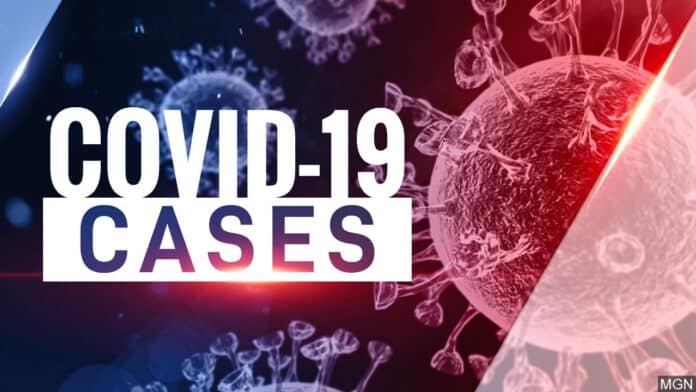By Cecilia Vasquez-Vigil
On July 30, I woke up on the first anniversary of my mom’s death, to the news that COVID-19 — which we thought was under control — is more deadly than ever. Hispanics are once again dying of the horrible virus that killed my mom and nearly took my life in 2020.
We are dealing with staffing shortages at hospitals in Texas, a state bickering over whether or not to allow schools from requiring masks. At least 100 hospitals in the state have reported that their ICU beds were filled to capacity and people are dying of treatable illnesses. At times it feels like we are on our own as the highly contagious Delta variant is causing a rapid spike in new COVID-19 cases, hospitalizations and deaths in the Lone Star State.
This healthcare crisis is unbelievable and so hard to process.
Every year, from Sept. 15 through Oct. 15, Hispanics, who now represent nearly one in five U.S. residents (60 million people), celebrate National Hispanic Heritage Month by honoring and thanking Hispanic/ Latino Americans for their contributions to our community. However, in the midst of this global pandemic, National Hispanic Heritage Month 2021 has a whole new meaning, especially for Hispanics at the end of their lives in Texas, where two in five of our residents identify as Hispanic.
As Hispanics, we must elevate our voices and support those among us who need better access to all end-of-life care options, including pain management, hospice, comfort and palliative care. In addition, in 10 states other than Texas, medical aid in dying is an end-of-life care option for a terminally ill person with unbearable suffering to request medication to die peacefully.
We must take responsibility for our own end-oflife care decisions so we do not leave these difficult, emotional decisions in the hands of doctors and loved ones who don’t not know our wishes — before we get a serious illness, like COVID- 19, cancer or dementia. We must address questions like: Do you want to be connected to a ventilator or not? Do you want to be resuscitated if you suffer a cardiac arrest?
One thing I wished mom had done, before she was gravely ill and hospitalized with COVID-19, was to fill out and share her advance care directive with our family and healthcare providers. This document spells out what care you do and don’t want and designates a proxy to make medical decisions for you in case you cannot speak for yourself. Every person — not just those of us currently living with a life-threatening disease — should complete this important task.
Since mom’s death and my near-death experience with COVID-19, I have made it my mission to raise awareness about preparing for the inevitable. Otherwise, I could be lying unconscious in a hospital bed and someone else would have to guess to make these critical decisions about how much suffering I am willing to endure before I die.
Throughout this process, I connected with the endof- life care advocacy group, Compassion & Choices. This non-profit organization has a free online COVID- 19 toolkit in English and Spanish available at CompassionAndChoices. org. On the organization’s website, I also ran across the End-of-Life Decisions Toolkit: An Advance Planning Guide and Toolkit in English and Spanish. This simple tool has the documents necessary to help anyone complete an advance directive.
As a former hospice volunteer, I am well aware that end-of-life care conversations are not the topic of choice for Hispanics, a community with the highest rates of life-threatening illnesses like diabetes. Our community and the African-American community also face more obstacles accessing and utilizing the full range of healthcare options at the end of life, such as hospice, palliative care and in some states, the option for a terminally ill person to take medication to die peacefully.
A year after my mom’s death, as I lay in bed awake at 3 a.m., I still struggle to live with the memories of watching my mom take her last breath alone over FaceTime. Only God knows if I will ever overcome it.
Something interesting happened the day I went to the funeral home to pick out the casket, flowers, hymns and the mariachi for mom’s burial in Brownsville.
The funeral director surprised me when I pulled my credit card to pay for mom’s Catholic service.
Mom gave us her last gift.
She paid for her own funeral.
Cecilia Vasquez-Vigil is an educator from Brownsville and former hospice volunteer who lives in Katy, Texas.




